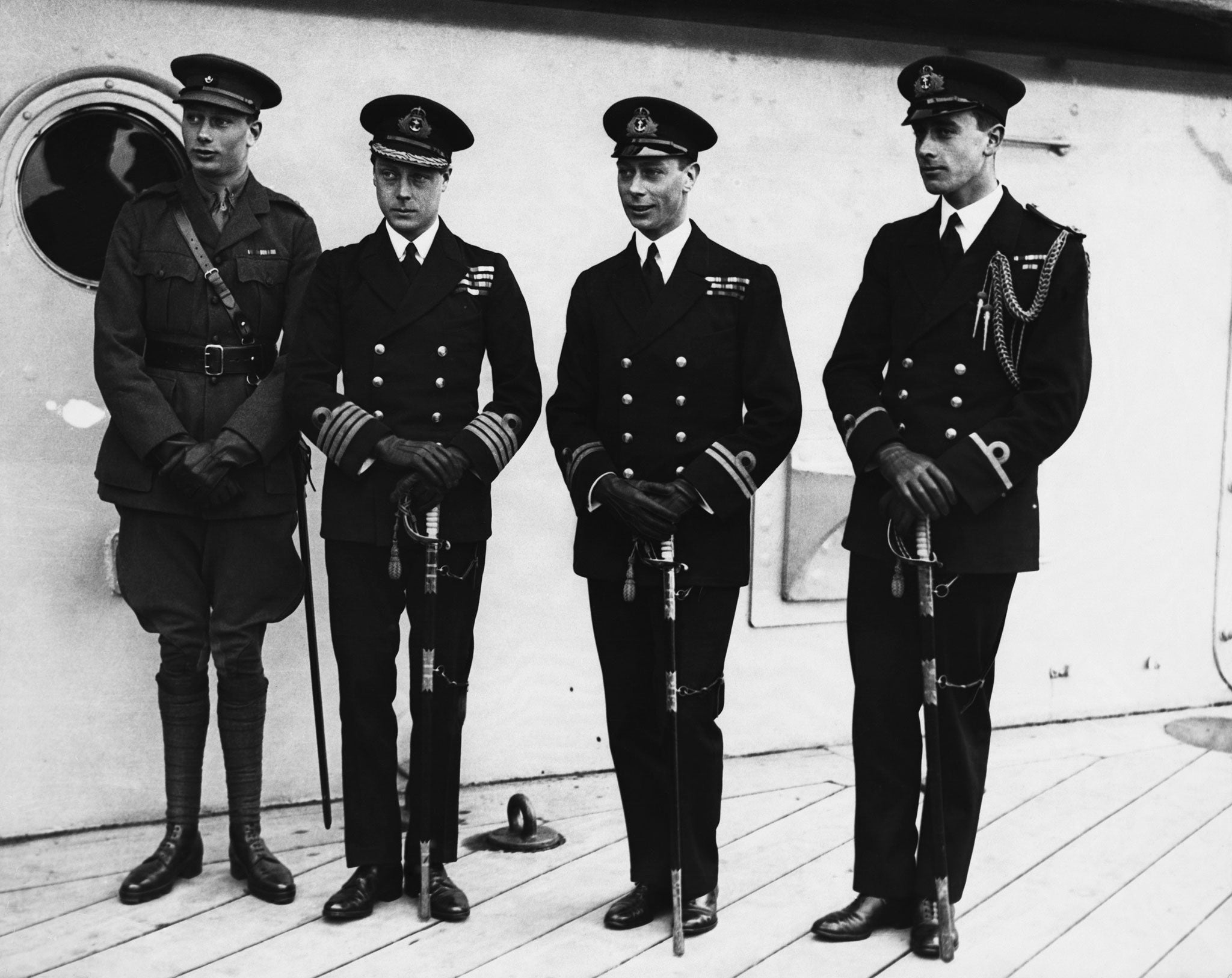Princes at War by Deborah Cadbury, book review: Familiar tale of war on the Windsor front
Story of royal abdication and family feuding is fascinating - but not new

This account of the royal family feud that stemmed from Edward VIII's abdication in 1936 is billed on the dust-jacket as "What happened after The King's Speech". That film, which depicted the new monarch's struggle to overcome his crippling stammer, informs Deborah Cadbury's text.
George VI is her hero, the ugly duckling who won through despite the hostility of the cock pheasant, his meretricious elder brother, who became Duke of Windsor. She portrays this as a triumph of character over charisma. While the King laboured to inspire his embattled people, the Duke grew increasingly embittered by his family's rejection of his wife, "an adventuress" in the view of Queen Mary, flirting with treason and perhaps contemplating a return to the throne under Nazi auspices.
The story could hardly be more familiar and Cadbury tells it well. She has carried out wide-ranging research, drawn on George VI's diary in the Royal Archives and discovered a few original sources of her own. It must be said that they add little of significance, though there are some piquant titbits. Here, for example, is Mrs Simpson raging over the telephone to the exiled Duke, three days after the abdication, about the denial of her royal title: "If they don't give you this thing I will return to England and fight it out to the bitter end. The Coronation will be a flop compared to the story I shall tell the British press." Cadbury also draws the less well-known royal brothers, the Dukes of Gloucester and Kent, towards centre-stage.
However her book often veers from history into drama. Thus Edward is presented, in opposition to George, as the complete villain. To be sure, he was an ardent appeaser who admired Hitler's achievement, long hankered for a negotiated peace and asked personal favours of the Nazis in wartime. But Cadbury entitles one chapter "Treachery", conjures with conspiracy theories and apparently believes self-serving and unprovable German reports that the Duke intended to betray his country. And she fails to challenge obvious absurdities recorded by the FBI, such as the allegation that Ribbentrop sent Mrs Simpson 17 carnations a day, representing the number of times they had slept together. In short, the book does not always distinguish fact from fantasy.
It undoubtedly plays down weaknesses of the King. George too favoured appeasement. As late as October 1939, the King urged Churchill to "leave the door open" to Hitler. And in May 1940 he wanted Halifax rather than Churchill as prime minister, which would probably have led to a disastrous settlement with Hitler. Furthermore Cadbury barely mentions the King's violent tantrums, or "gnashes". And she accepts the myth that he shared the privations of his subjects, though his private secretary once attributed illness in the Palace to a surfeit of grouse.
Cadbury is also too kind to the reprobate Kent and to "Potty" Gloucester, who only perked up at the prospect of a drink and was described by a fellow officer as "very lazy, and very, very stupid". Moreover she is not an entirely reliable guide to the war in general. Thus Cadbury says that the Atlantic Charter, signed by Churchill and Roosevelt in 1941, "set out shared ideals, including that all people had a right to self-determination". But the prime minister crucially told parliament that this principle did not apply to the British Empire, which she omits to mention. All told, then, a somewhat stuttering performance.
Join our commenting forum
Join thought-provoking conversations, follow other Independent readers and see their replies
Comments
Bookmark popover
Removed from bookmarks